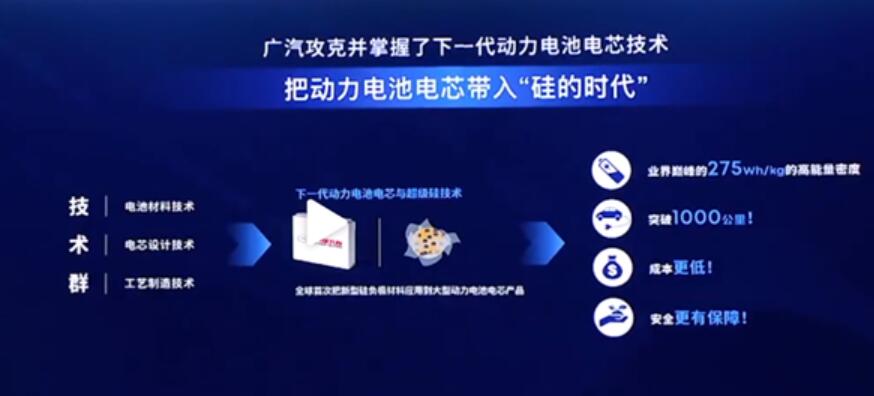Chinese automobile maker GAC Group said on Tuesday it has achieved an energy density of 275 watt-hours per kilogram of square hard-shell cells using a new silicon anode material technology, enabling electric vehicles equipped with such batteries to have a range of more than 1,000 kilometers.
At its Technology Day event held on July 28, the company said it had mastered the technology for the next generation of power battery cells.
This includes unique core technologies in battery materials, cell design, production process, manufacturing equipment, quality control, and other fields, and will be the first time in the world to apply new silicon anode materials to large power battery cell products, said Mei Untong, head of the Battery Research and Development Department at the New Energy Technology Center of the GAC Group Research Institute.
This not only allows the electric vehicle to exceed 1,000 km range but also provides lower cost and better safety.
In addition to the range, GAC Group has also achieved a new breakthrough in battery charging speed.
GAC Group has been researching the large-scale preparation of graphene since 2014, and already has independent intellectual property rights for the 3DG graphene preparation technology.
The company is also using the graphene material in a variety of applications, including fast-charging lithium-ion batteries, supercapacitors, lithium-sulfur batteries, and lightweight body materials.
The company claims that its 3DG preparation method is simple, stable, and efficient, and the resulting 3D multi-stage pore structure graphene can effectively overcome cost defects, with production and preparation costs up to 1/10 of those of conventional preparation methods.
Based on graphene's excellent electrical conductivity and special 3D structure, GAC Group has developed a super fast-charging battery that can be charged to 80% in 8 minutes. It can be recharged in 10 minutes and has a range of 200-300 km.
Currently, GAC Group has already conducted preliminary validation of the graphene technology at multiple levels, from the cell, module, to the entire vehicle.
The GAC Group says that a new era of electric vehicles will begin after the completion of mass production testing on board.
